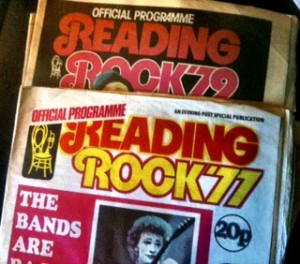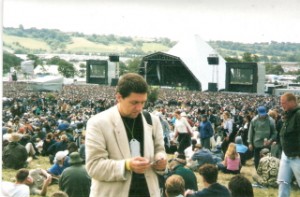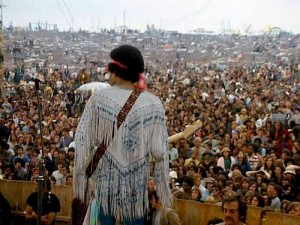 Carnivalising Pop: Music Festival Cultures
Carnivalising Pop: Music Festival Cultures
an international one-day symposium at the University of Salford, on Friday June 13, 2014
Recommended event of the week in Manchester Evening News!
Guest speakers:
- Dr Gina Arnold, Stanford University, USA, author of Route 666: On the Road to Nirvana, Kiss This: Punk in the Present Tense
- Alan Lodge, independent photographer and festival activist, discusses some of his classic images from 1970s free festivals and 1980s/1990s free party scene, and new traveller culture.

Other contributors include:
- Dr Nick Gebhardt, Birmingham City University
- Dr Roxanne Yeganegy, Leeds Metropolitan University
- Dr Anne Dvinge, University of Copenhagen
- Dr Mark Goodall, Bradford University
- Prof George McKay, Salford University
- Dr Rebekka Kill, Leeds Metropolitan University
- Prof Andrew Dubber, Birmingham City University
- Prof Robert Kronenburg, University of Liverpool
- Ben Robinson, director, Kendal Calling festival
- Danny Hagan, co-founder, Green Man festival
- Dr Emma Webster, Oxford Brookes University
- Dr Ben Halligan, Salford University.
The final programme for the day is now (as of 5 June) available by clicking here: Carnivalising Pop programme definitive.
The event takes place at the Old Fire Station conference venue on the main University of Salford campus. Here are directions. The nearest train station is Salford Crescent (about 5-10 mins walk). There is also parking in Irwell Place car park.
… Newport. Beaulieu. Monterey. Notting Hill. Woodstock. Glastonbury. Nimbim. Roskilde. Reading. Stonehenge. Castlemorton. Love Parade. Burning Man… Popular music festivals are one of the strikingly successful and enduring features of seasonal popular cultural consumption for young people and older generations of enthusiasts. Notwithstanding the annual declaration of the ‘death of festival’, a dramatic rise in the number of music festivals in the UK and around the world has been evident as festivals become a pivotal economic driver in the popular music industry. In 2010, there were over 700 music festivals in Britain alone, and it is estimated that three million people attend music festivals a year. Today’s festivals range from the massive to community and ‘boutique’ events.
The festival has become a key feature of the contemporary music industry’s commercial model, and one of major interest to young people as festival-goers themselves and as students. But the pop festival also has a radical past in the counterculture, a utopian strand in alternative living, some antagonistic anti-authoritarian history, an increasingly mediated other presence, as well as a strong current ethical identity. In the community/communitas of festival, interpretations vary from Temporary Autonomous Zone to festival as pollutant of the rural, from celebration to destruction of the genius loci.

At the start of the 2014 pop festival season, we are holding this international event. The purpose of Carnivalising Pop is to discuss and explore the significance of music festival cultures. In part the event presents work in progress from the forthcoming Bloomsbury collections The Pop Festival: History, Music, Media, Culture (McKay ed., 2015) and The Arena Concert: Music, Mediation, and Mass Entertainment (Halligan, Fairclough-Isaacs, Edgar, Spelman eds., 2015). We also include perspectives from festival organisers, as well as from activist and photographer Alan Lodge. The day will be of interest across disciplines, from Popular Music, Media and Cultural Studies, Performance, Film, History, Sociology, American Studies, Business, Tourism and Leisure, Organisation Studies. and it will be of interest to festival organisers and festival-goers too …
Registration
This is a free event, as part of the AHRC Connected Communities Programme. It is organised by Prof George McKay, Connected Communities Leadership Fellow (g.a.mckay@salford.ac.uk).
Carnivalising Pop registration form
However advance registration is essential—to register, contact Dr Deborah Woodman, conference administrator, d.woodman@salford.ac.uk, +44 (0)161 295 5876, or download the registration form above, complete and return. Any queries to Dr Woodman too, please.


5 replies on “Symposium 2014”
[…] Here is the finalised programme for the symposium, which includes jazz festivals and several contributions from the Rhythm Changes team. Further information, including directions and registration information, is here. […]
[…] Here is the finalised programme for the symposium, which includes jazz festivals and several contributions from the Rhythm Changes team. Further information, including directions and registration information, is here. […]
[…] Here is the finalised programme for the symposium. Further information, including directions and registration information, is here1. […]
[…] Further information is at georgemckay.org/festivals/symposium-2014. […]
[…] Further information is at http://georgemckay.org/festivals/symposium-2014/ […]